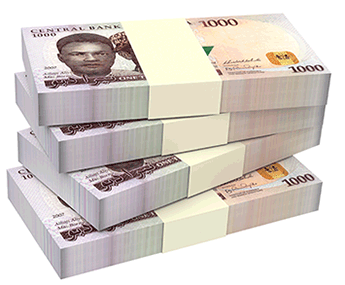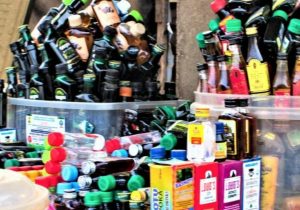
By Godwin Anyebe
After a period of significant volatility and uncertainty, the Nigerian Naira is showing promising signs of resurgence, gaining momentum against major international currencies. This positive shift is largely attributed to the audacious and consistent reforms implemented by the Central Bank of Nigeria (CBN), which have begun to attract much-needed foreign capital, significantly boosting liquidity in the foreign exchange (FX) market and restoring a crucial measure of investor confidence.
For months, businesses and individuals grappled with a fluctuating exchange rate and acute dollar scarcity, impacting everything from import costs to investment decisions. However, recent weeks have seen a noticeable improvement, with the Naira demonstrating greater stability and a healthier supply of foreign currency available in the official window. This newfound stability is a welcome relief for an economy eager for sustained growth.
At the heart of this turnaround are the strategic policy decisions taken by the CBN under Governor Olayemi Cardoso. Key among these has been the aggressive tightening of monetary policy, including significant hikes in the Monetary Policy Rate (MPR). This move, while making borrowing more expensive, has been instrumental in making Naira-denominated assets more attractive to foreign investors seeking higher yields.
“The CBN’s decisive actions, particularly the interest rate adjustments and the push for greater transparency in the FX market, have been critical,” notes Dr. Amina Bello, a Senior Economist at a leading financial institution in Lagos. “By signaling a commitment to price stability and a market-driven exchange rate, they’ve created a more predictable environment for foreign capital.”
Furthermore, the CBN’s ongoing efforts to liberalize the FX market, including the re-introduction of the ‘willing buyer, willing seller’ model and measures to clear FX backlogs, have played a pivotal role in improving liquidity. The recent directive on bank recapitalization, aimed at strengthening the financial sector’s resilience, has also sent a strong signal of stability and long-term planning to international markets.
The impact of these reforms is evident in the noticeable increase in foreign capital inflows. Foreign Portfolio Investments (FPIs), which had largely shied away from Nigeria due to FX illiquidity and uncertainty, are making a comeback. Data from the Nigerian Exchange (NGX) indicates a significant surge in foreign participation, with international investors accounting for a substantially larger share of market turnover in the first half of 2025 compared to the previous year.
“We are seeing a renewed appetite from foreign portfolio investors,” explains Mr. Kunle Adebayo, a seasoned financial analyst. “They are attracted by the higher yields on government securities and the perceived undervaluation of Nigerian equities, especially with the improved FX availability for repatriation. This influx of dollars is directly contributing to the enhanced liquidity we’re witnessing.” While Foreign Direct Investments (FDIs) typically take longer to materialize, the improved FX stability is a crucial prerequisite for attracting long-term, productive investments.
The improved FX stability has immediate benefits. Businesses are finding it easier to access foreign currency for imports of raw materials and machinery, potentially leading to reduced production costs and, eventually, lower prices for consumers. It also eases the pressure on companies with foreign currency obligations.
However, experts caution that while the current momentum is encouraging, the journey to full economic stability is ongoing. “The gains are commendable, but we must remain vigilant,” Dr. Bello advises. “Inflation, particularly food inflation, remains a significant challenge. The CBN’s monetary policies need to be complemented by robust fiscal policies that address structural issues like infrastructure deficits, insecurity, and food supply chain bottlenecks.”
Mr. Adebayo adds, “Sustainability is key. The government must continue to foster a conducive environment for both portfolio and direct investments. Consistency in policy and continued transparency in the FX market will be crucial to maintaining this positive trajectory.”
The CBN’s bold pivot to market-determined FX rates, aggressive monetary tightening, and transparency initiatives have restored FX liquidity and foreign capital flows, giving the naira a much‑needed lift. These reforms have attracted significant portfolio investments, bolstered reserves, narrowed official-parallel spreads, and delivered balance‑of‑payments surpluses.
However, inflation remains stubbornly high, and much depends on sustained policy rigor. A reversal or global commodity shift could dent gains. Still, for now, Nigeria looks more credible to foreign investors—and its FX market more liquid and reliable. If reforms stick and inflation moderates, the naira’s momentum can be durable.
Naira’s recent rally is real and policy‑driven, not speculative. The CBN’s structural shifts—market-driven FX, transparency, yield attractiveness—are drawing foreign inflows, improving reserves, and stabilizing liquidity. But the next test will be taming inflation and maintaining reform discipline, which will determine whether this momentum evolves into sustainable macroeconomic strength.
As Nigeria navigates the second half of 2025, the Naira’s newfound momentum offers a beacon of hope. The CBN’s reforms have laid a foundation for greater stability and investor confidence, paving the way for potential broader economic recovery, provided complementary policies are effectively implemented and sustained.


